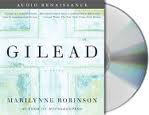In the old days, say, six years ago, reading for me was, simply, reading. Holding a book in my hands, read through the printed words, turned the pages manually, feeling the paper at my fingertips. But today, I have several ways to ‘experience’ a book. I can still read in the old traditional way, or download the eBook to my iPad using the app ‘OverDrive’, or, listen to an audiobook, on CD’s or MP3.
As a slow reader, I find listening to audiobooks a time-saving way, albeit I still prefer to hold a book in my hands and see prints on paper. But in this day of multi-tasking, I sometimes listen to audiobooks while driving as I can fit in my reading time. I confess, I could be distracted by the story, or the traffic. But overall, listening to audiobooks while driving is a perfect alternative for me, in lieu of time and space for ‘actual’ reading.
Recently I read an article by T. M. Luhrmann in the New York Times entitled Audiobooks and the Return of Storytelling. This insightful piece introduced me to a different reason for listening to audiobooks.
First off, Luhrmann takes down the generally accepted view that reading with our eyes as ‘more serious, more highbrow’ than listening to a story being told orally. She points to the early childhood experience when way before we could read, we were introduced to stories through listening to them. So maybe such a notion extends to our adult life making us feel that listening to stories is a childlike activity than reading the text on our own.
Many great books were actually oral legends, Luhrmann points out, “… for most of human history literature has been spoken out loud. The Iliad and the Odyssey were sung.” Noted. Can’t say listening to audiobooks is child’s play.
Luhrmann then comes to the crux of her idea. While we listen to an audiobook, we can do something else with our eyes and hands. That’s just obvious, isn’t it? Exactly what I said at the beginning of this post, the benefit of multitasking. But I was too rash to have thought I knew it so. What I read after this was nothing short of an epiphany for me.
No, not while driving, but when Luhrmann is gardening, she listens. Often, she would listen to the Bible. I love what she has to say next (emphasis mine):
Listening to a book is a different sensory experience than reading it. The inner imagining of the story becomes commingled with the outer senses — my hands on the trowel, the scent of tansy in the breeze. The creation of this sensory richness was in fact an explicit goal of the oral reading of the Bible in the medieval European cloister, so that daily tasks would be infused with Scripture, and Scripture would be remembered through ordinary tasks.
Whenever she looks at the “50 polypodium californicas and 50 festuca idahoensis in the dappled light beneath [her] oaks” she would think of “Gatsby’s extraordinary gift for hope.” Why, Luhrmann was listening to Fitzgerald’s novel while planting those the year before. Now looking at the plants would flash upon that inward eye what she had heard.
Of course, that sounds so simple and natural, a kind of classical conditioning, if you will. We fuse our senses and experience. All the more that we should listen to good books or we’ll have bad memories looking at the tasks we’d performed.
And what a wonderful idea Luhrmann had left me with: Scripture-infused daily tasks. That can’t be more apt for Lent.
***
Tanya Marie Luhrmann teaches Anthropology at Stanford.
Related Posts on Ripple Effects:
No Texting for Lent and the End of Solitude
The Dinner by Herman Koch: A Timely Read, for Lent?
What Makes a Good Audiobook Narrator?
***








